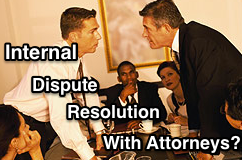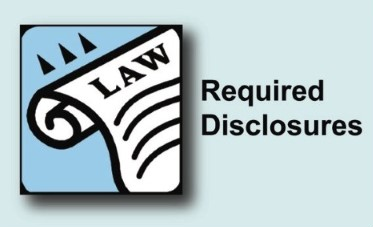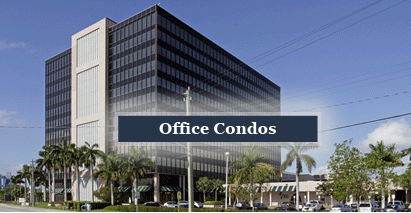By David Swedelson, Partner, SwedelsonGottlieb, Community Association Attorneys
 Growing up, there was a home in our neighborhood that had a massive radio antenna, much like the one in the photograph that is part of this blog post. As a kid, I was fascinated by the antenna. It was so big. Actually, I was captivated by the thought that I could talk to people around the world via a ham radio.
Growing up, there was a home in our neighborhood that had a massive radio antenna, much like the one in the photograph that is part of this blog post. As a kid, I was fascinated by the antenna. It was so big. Actually, I was captivated by the thought that I could talk to people around the world via a ham radio.
As an adult, while I may still be enamored by the prospect of communicating with people around the world, these days I do that via email, twitter and the telephone. While I have no problem with others wanting to be ham radio operators, I would not want to see one of these radio antennas on the roof of a home at my community association. And I know that many of you feel the same way about not allowing radio antennas, like the one in the photograph, at the associations you live in, manage or work with.
 HOA Law Blog
HOA Law Blog



 Who said you can’t trust lawyers? You can certainly trust SwedelsonGottlieb, as we are actively opposing proposed new legislation that would make us more money, AB 1738. This bill concerning internal dispute resolution (IDR) in common interest developments (Civil Code Sections 5900-5920) was recently passed by the the California State Assembly and the Senate unopposed. It’s clear that the legislators do not understand the implications of what may happen if this legislation is signed into law by the Governor. If signed into law, this new law will most certainly make more work for us community association attorneys, as owners will be bringing their attorneys to IDR meetings, and many boards will opt to do the same.
Who said you can’t trust lawyers? You can certainly trust SwedelsonGottlieb, as we are actively opposing proposed new legislation that would make us more money, AB 1738. This bill concerning internal dispute resolution (IDR) in common interest developments (Civil Code Sections 5900-5920) was recently passed by the the California State Assembly and the Senate unopposed. It’s clear that the legislators do not understand the implications of what may happen if this legislation is signed into law by the Governor. If signed into law, this new law will most certainly make more work for us community association attorneys, as owners will be bringing their attorneys to IDR meetings, and many boards will opt to do the same.  New legislation amending two of the transfer disclosure sections of the Davis-Stirling Act, Sections 4528 and 4530, will be effective January 1, 2015.
New legislation amending two of the transfer disclosure sections of the Davis-Stirling Act, Sections 4528 and 4530, will be effective January 1, 2015.  The National Chapter of Community Associations Institute (CAI) recently sent out the following urgent message, which we are reproducing here in its entirety. If you want to preserve the right for homeowner associations to be able to restrict the installation of radio towers and antennas, you need to read and act on this important information:
The National Chapter of Community Associations Institute (CAI) recently sent out the following urgent message, which we are reproducing here in its entirety. If you want to preserve the right for homeowner associations to be able to restrict the installation of radio towers and antennas, you need to read and act on this important information:
 In recent years, California has been faced with drought conditions, reduced water supplies and a consistently growing population. One step the California legislature has taken to address these issues was the adoption of Assembly Bill 1881, the Water Conservation in Landscaping Act of 2006 (the “Act”), which establishes goals for the efficiency and reduction of water usage in California. The Act has been codified in the following California statutory provisions: Section 4735 of the Civil Code; Article 10.8 (commencing with Section 65591) of Chapter 3 of Division 1 of Title 7 of the Government Code; Section 25401.9 of the Public Resources Code; and Article 4.5 (commencing with Section 535) to Chapter 8 of Division 1 of the Water Code, relating to water conservation.
In recent years, California has been faced with drought conditions, reduced water supplies and a consistently growing population. One step the California legislature has taken to address these issues was the adoption of Assembly Bill 1881, the Water Conservation in Landscaping Act of 2006 (the “Act”), which establishes goals for the efficiency and reduction of water usage in California. The Act has been codified in the following California statutory provisions: Section 4735 of the Civil Code; Article 10.8 (commencing with Section 65591) of Chapter 3 of Division 1 of Title 7 of the Government Code; Section 25401.9 of the Public Resources Code; and Article 4.5 (commencing with Section 535) to Chapter 8 of Division 1 of the Water Code, relating to water conservation. Is your condo association exclusively a commercial or industrial development? Surprise — as of January 1, 2014, the Davis-Stirling Act no longer applies to your association. Your association is now regulated by the new Commercial and Industrial Common Interest Development Act (CICIDA), Civil Code Sections 6500-6876.
Is your condo association exclusively a commercial or industrial development? Surprise — as of January 1, 2014, the Davis-Stirling Act no longer applies to your association. Your association is now regulated by the new Commercial and Industrial Common Interest Development Act (CICIDA), Civil Code Sections 6500-6876.
 SB 298, which adds Section 53069.81 to the Government Code, is an unusual piece of legislation that provides community associations in one county of California with the ability to contract with local law enforcement agencies to provide Vehicle Code enforcement services at the association. We had not heard about this bill until now and do not know why it was limited to Orange County community associations as we know that associations in other parts of the State have a need for help with enforcement of the Vehicle Code on their private streets.
SB 298, which adds Section 53069.81 to the Government Code, is an unusual piece of legislation that provides community associations in one county of California with the ability to contract with local law enforcement agencies to provide Vehicle Code enforcement services at the association. We had not heard about this bill until now and do not know why it was limited to Orange County community associations as we know that associations in other parts of the State have a need for help with enforcement of the Vehicle Code on their private streets.  In 2012, many managers were concerned when the California legislature enacted AB 2237, amending Business and Professions (B&P) Code Section 7026.1 relating to contractors, which became effective at the beginning of this year. The amendments to AB 2237 mandated required “consultants” overseeing some construction projects to be licensed “contractors”. This caused some managers to be concerned as to whether they were considered “consultants” and therefore required to be licensed contractors when performing management services for condo and homeowner associations. Specifically, there was concern that doing typical management functions such as bid solicitation, bid management and/or oversight of common area maintenance projects would require a contractor’s license.
In 2012, many managers were concerned when the California legislature enacted AB 2237, amending Business and Professions (B&P) Code Section 7026.1 relating to contractors, which became effective at the beginning of this year. The amendments to AB 2237 mandated required “consultants” overseeing some construction projects to be licensed “contractors”. This caused some managers to be concerned as to whether they were considered “consultants” and therefore required to be licensed contractors when performing management services for condo and homeowner associations. Specifically, there was concern that doing typical management functions such as bid solicitation, bid management and/or oversight of common area maintenance projects would require a contractor’s license.